The Elements
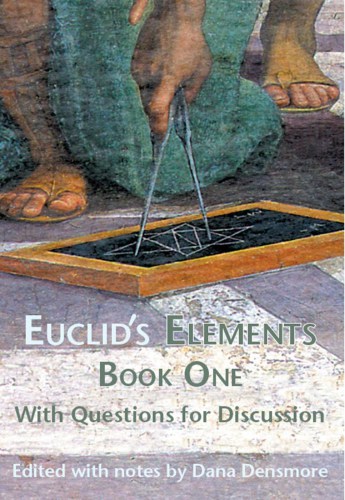
Euclid’s text is a model for how to think clearly and logically. Through the study and demonstration of his geometrical proofs, students learn the structure of logical arguments and what it means to prove something. After one understands an entire proof of Euclid’s, you know what it feels like to really know that something is true. His proofs provide a window onto the beauty of truth and inspire us to want to open it further. Studying this text provides a benchmark by which students can judge how well they know other things. “Is this as clear to me as a Euclid proof?” If not, there is more to understand and work to be done!
Parable of The Sower
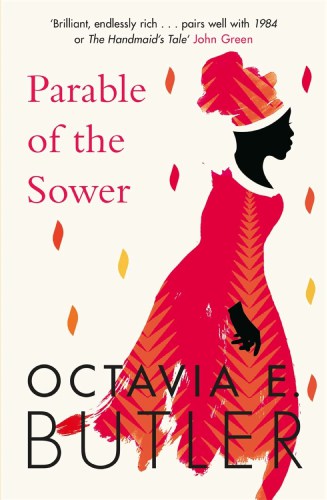
Butler helps readers consider what good things we may lose if we do not fight for the future, or are too blinded by our comforts today to notice the precarious social and political context which makes their enjoyment possible. The text also helps raise questions about the origin of prophecy, imploring the reader to imagine Lauren and Moses as involved in a shared struggle to articulate a message of freedom from bondage and suffering to a people made nearly deaf to it by despair. It is fruitful to consider the allegorical significance of the “Pyros” who, possessed by a drug, put on costumes of diversity before entering into an ecstatic orgy of murder and immolation, which they understand as justice. Readers may consider what ideological narcotics may encourage similar behaviors today.
Hayy Ibn Yaqzan
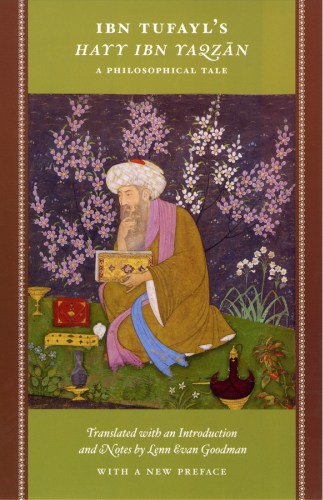
Ḥayy ibn Yaqẓān, literally “Alive, Son of Awake”, raises many fundamental questions: What is life and how does animal life differ from that of plants and inanimate objects and why? Where did everything come from, and how did that happen? Why am I asking these questions and how/do the conclusions I draw here affect my life and the decisions I make? Asking these questions along with Hayy, students may begin to wrestle with some of the deepest and most persistent questions human beings have asked. Following Tufayl’s narrative provides an opportunity for students to become awake and alive to these questions.
The Decameron
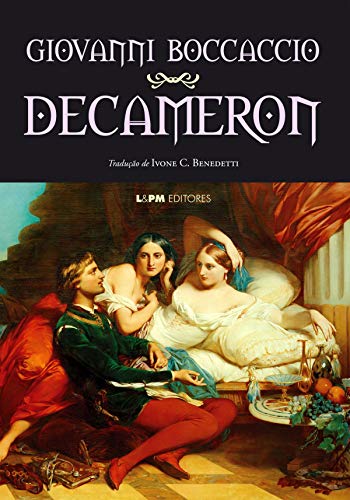
The Decameron is about living through a pandemic. The text makes direct appeal to contemporary sensibilities and experiences, and students can immediately form a connection with the text due to its relatable narrative about a pandemic, including failure of a state in controlling the disease and spreading of nonhuman viruses in a highly globalized world. The Decameron is an example of excellent literary prose, the stories themselves don’t focus on the suffering from the plague, but engage the reader through extremely witty, and some gloomy tales about human endurance and experiences about love, justice, happiness and sexual intercourse and religious dogma.
Journey to The West
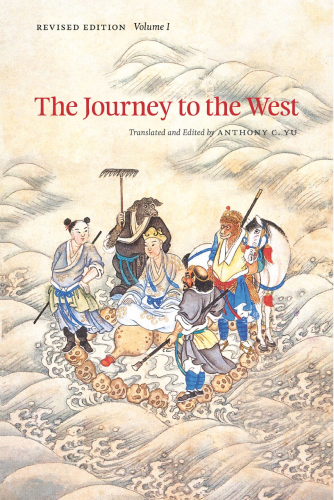
The Journey to the West not only provides insights into Daoism, Buddhism, and Taoism and how these teachings interact with each other and co-exist harmoniously. However, at the same time, The Journey to the West raises important questions on human nature and morality that still have relevance to today’s society. For example, the journey that Xuanzang, Sun Wukong, Zhu Baije, and Sha Wujing take serves to symbolize one’s detachment from material items as they corrupt the human condition and prevents true enlightenment. Moreover, The Journey to the West highlights the long-standing relationships that exists between individuals and a Supreme Being of Supreme Beings, which has continued relevance today.
Never Let Me Go
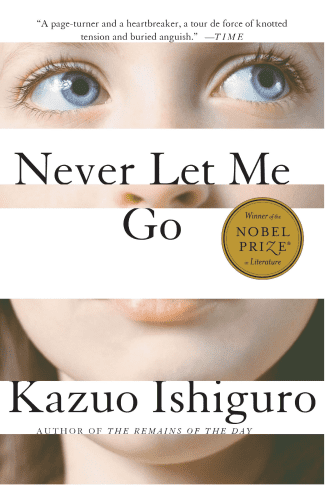
Since it is written as a first person coming-of-age novel, Never Let Me Go is accessible to all students. Students of traditional college age will relate to the late adolescent/early young adult experiences of Kathy H. and her peers, like negotiating friendships with romantic and sexual relationships and adjusting to life outside of adult guidance and protection. Non-traditionally aged students will remember these experiences as well. So, while the genre and narrative will be unlikely to challenge students, the experience of connecting emotionally to the characters, while coming to understand they have been bred to be used by non-cloned humans, will test students’ assumptions about technology and human exploitation of that technology. Rather than approaching the question heavy handedly, Ishiguro leads readers gently to interrogate not only the attitudes of humans to the clones, but the matter-of-fact resignation of the clones to their own fates.
Alice’s Adventures in Wonderland
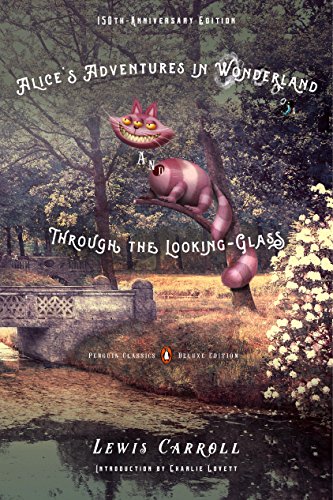
Here are two reasons students might experience the text as transformative: Alice is a stranger-in-a-strange-land tale par excellence. It illustrates how one’s sense of self can be undermined in a new context. We may know ourselves in our own world, but who are we in a world that operates with rules we don’t understand? How do we respond to that which seems nonsensical? Readers are confronted with fundamental questions about the relationship between self and environment. Equally, Alice is a story about joy, innocence, imagination, and fun. Just as nonsense can challenge sanity and order, it can also be embraced and enjoyed.
The Dupin Trilogy
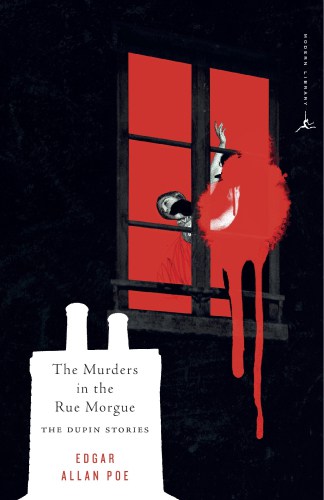
With the Dupin trilogy, Edgar Allan Poe single-handedly invented the detective story as a genre of fiction. Anyone interested in this type of fiction and its history will have reason to experience these stories. As well as being detective stories that are about Dupin’s ability to analyze, resolve, and disentangle, they are just as much about engaging the reader’s ability to do the same with the text itself. Each of these stories is itself a mystery, inviting the reader to do their own investigation and analysis. In addition, Poe’s brilliant writing and mastery of the English language are enough to please and exercise even the most experienced reader.
Meditations on First Philosophy
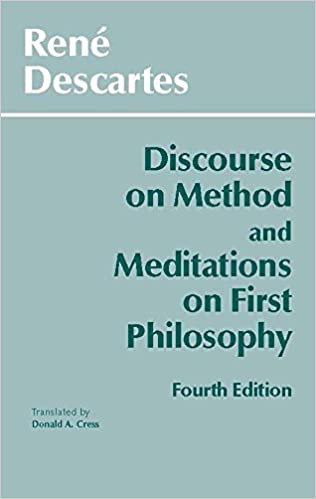
The Meditations, by Rene Descartes, is a pivotal text, marking the break between distinctive ancient and modern conceptions of self and world. In the preface to the work, addressed to the Sorbonne, Descartes explicitly states that his goal is to prove the existence of God and the soul. However, the world Descartes recovers after all his doubt is not the one we left behind. Colors are no longer in the object, but are relegated to mere secondary qualities in us. The bodies that inhabit this world are no longer understood through Aristotelian natures, but rather, their essence is captured by their mathematical (geometrical and arithmetical) properties and relations alone. In this way, Descartes sets the metaphysical foundation for the emerging physical sciences of the early modern period.
Frankenstein
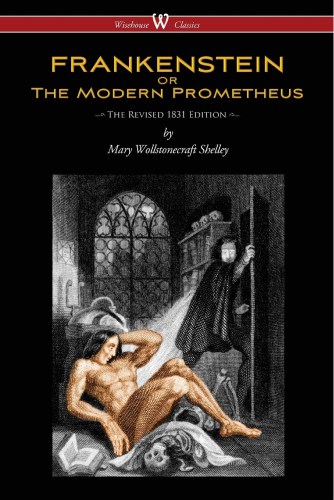
Few students will not encounter Frankenstein without some preconceptions, as the character of the creature (if not the story itself) is ubiquitous. But popular culture versions of the story often exaggerate the monstrosity of the creature and minimize or even ignore Victor’s abandonment and renouncement of the creature and his responsibilities toward his own creation.

